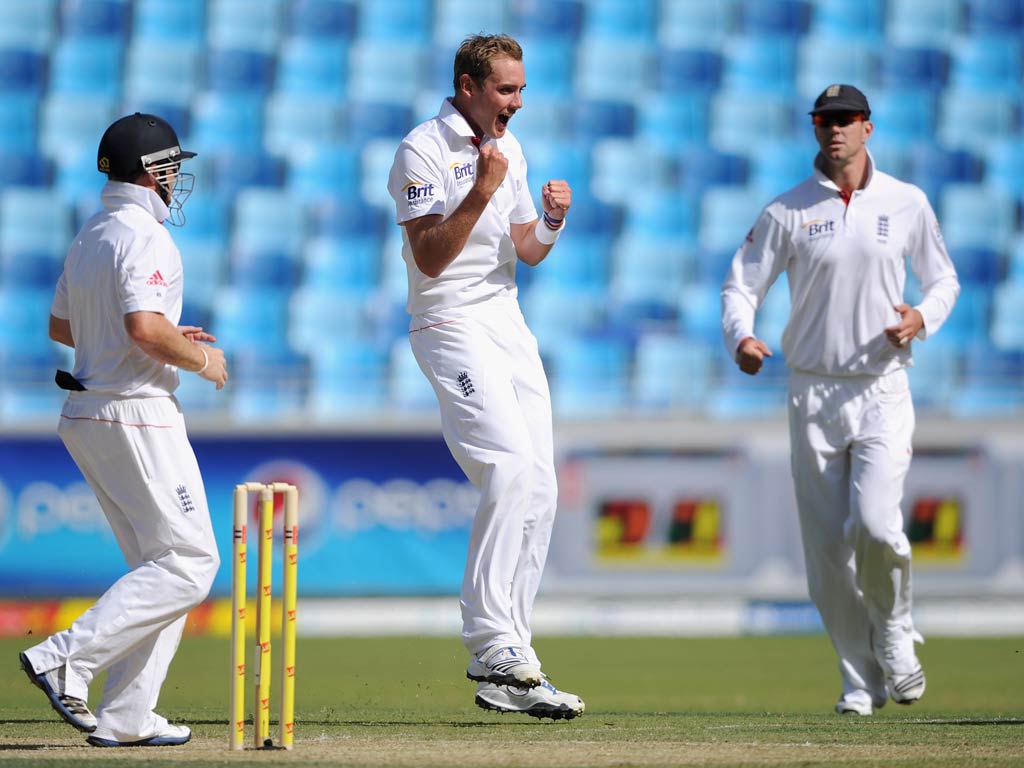Broad: We have a history of winning after 'average' starts

Despite the understandable excitement surrounding England's comeback yesterday, one fact should be clear. To win a Test match after scoring 200 in the first innings is rare. England have done it since 1997 when they scored 180 against Australia and won on the third afternoon by 18 runs, though Australia, having already annexed the Ashes, were dashing for the airport at the time.
It is also difficult to win after conceding too large a first innings deficit. England have done it legitimately 13 times after trailing by 100. The most famous example was against Australia at Headingley in 1981 when they were 227 behind and followed on, the most recent was against New Zealand at Old Trafford in 2008 when the deficit was 179.
As the fast bowler, Stuart Broad, said last night: "Pakistan are still in a strong position and we're chasing the game but to look back to Brisbane in 2010 and Trent Bridge last summer, where we had an average first innings, the bowlers kept us in the game and we went really big in our second innings."
England's sterling day could have been improved had they fielded more astutely. Two catches, difficult but not impossible, went begging and there was also a missed run out. The guilty men, in order, were Chris Tremlett, Kevin Pietersen and Ian Bell.
England will dislike being reminded of it, but it was because they took the half-chances that they defeated Australia so resoundingly last year. The crucial dismissal of the day came in the penultimate over when Misbah-ul-Haq was given out leg before after a review.
England looked as though they were not going to bother having another look after Graeme Swann's appeal was turned down. But Swann's desires ("Swanny wants to refer everything," said Broad, proving it takes one to know one) prevailed and the decision went upstairs.
Misbah was hit just on the line of off stump by a turning ball which HawkEye showed would have hit leg halfway up and he had to go. "I thought it might have turned a bit too much," said Broad. "With two referrals left and him being a key player on 50 it was worth the risk. There is no point in leaving the referral in the hutch not used."
Like everything else in Test cricket, DRS is a game of strategy and England judged it perfectly at a key moment.
Join our commenting forum
Join thought-provoking conversations, follow other Independent readers and see their replies
Comments
Bookmark popover
Removed from bookmarks